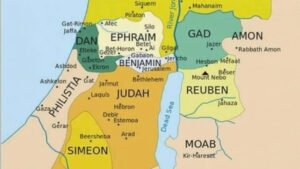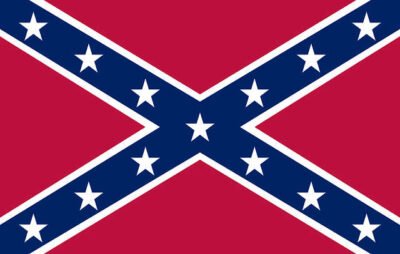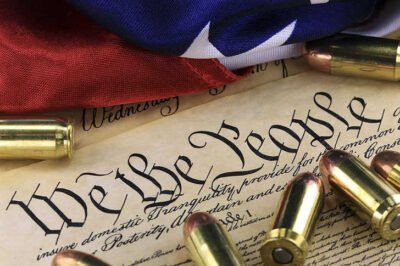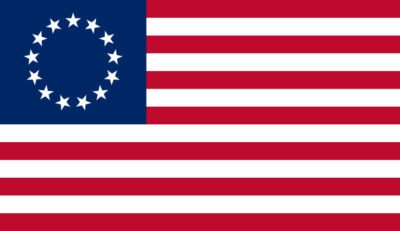Before and After the “Founding Documents”
This article is intended to demonstrate that around or just after 1776 a radical shift in the language of Constitutions and laws of the colonies/states began to take place.
In the prior articles, we discussed the ambiguous language around God that entered into the legal documents around the writing of the US Constitution. In contrast this article shows that just prior to the Constitution, even in the midst of the percolating rebellion against the king of England, the general sentiment of the people living in America was not one of fully autonomous independence from the Name of the King of Kings.
What follows shows the sentiment of each of the states that existed at the time of the signing of the Declaration of Independence (reflected in the “Early Documents”). Most of the “Early Documents” (mentioned below) were written about the time of the Declaration of Independence. Some of them were even written afterward, thereby confirming the general sentiment that Christianity and references to it should be held as law.
Delaware
Early Documents
1776 – God the Father and Jesus Christ explicitly named
Late Documents
1792 – Both absent
1897 – God generalized
Maryland
Early Documents
1776
It is the duty of men to worship God
All persons professing the Christian religion are entitled to religious liberty
Taxes may be imposed upon the people to support the Christian religion
An oath of office required profession of the Christian religion
Late Documents
1867
All religion protected (none named)
No taxes to support Christianity
Oaths (if they require an acknowledgement) cannot exceed the words “a belief in God” – i.e. not associated to a particular religion
Virginia
Early Documents
1776
Free exercise of religion
Worship the Creator
Mutual duty of all to practice Christian forbearance and love
North Carolina
Early Documents
1776
Qualifications for office:
Belief in God
Believe the truth of the Protestant religion
Believe the divine authority of both the Old and New Testaments
Late Documents
1838
References removed
South Carolina
Early Documents
1778
Christianity established as the state religion
All significant offices could only be filled by Christians of the Protestant religion
Late Documents
1790
References to Christianity removed
Georgia
Early Documents
1777
Representatives shall be of the Protestant religion
Oaths of office end with “so help me God”
Late Documents
1789
References removed
New Hampshire
Early Documents
1784
Legislature may impose taxes to support teachers of Protestant religion.
Senators must be Protestant
“President” must be Protestant
Christianity specifically protected under state law
Late Documents
1877
References removed
Massachusetts
Early Documents
1780
Legislature may impose taxes to support teachers of Protestant religion
Specifically mentions that education [should be] to the advantage of the Christian religion
Oaths contain “so help me God”
Christianity protected under state law
Governor must be Christian
Lieutenant governor must be Christian
Late Documents
~1820-1920
References removed
Connecticut
Early Documents
1639
Fundamental Orders of Connecticut specifically mention Jesus Christ among other significantly specific things and serves as the “Constitution” for the state until around 1816
1818
Freedom of religion
Christianity specifically mentioned several times
Christianity specifically protected
Late Documents
1965
Freedom of religion explicitly guaranteed to everyone including non-Christians
References to Christianity removed
New York
Early Documents
1648
Laws requiring strict observance of the Sabbath (imposing a mandatory weekly rest day) with morning and afternoon preaching
1777
“in the Year of our Lord” specifically stated
Special protections for Quakers
Late Documents
1821
References to Christianity removed
New Jersey
Early Documents
1776
Specific protections afforded for Protestants of “the Faith“
1777
“in the Year of our Lord” specifically stated
Special protections for Quakers
Late Documents
1844
References to Christianity removed
Religion generalized
the Faith becomes his faith
Pennsylvania
Early Documents
1701
The document acting as a “constitution” specifically mentions The Father of Lights, Jesus Christ, and “in the year of our Lord”
Late Documents
1776
God generalized
All other references absent
The Sentiment
Hopefully, you can see how this article demonstrates the will of the existing states at the time prior to the Constitution of the US (prior to 1789). Though we can see a softening in some of the language around the time of the Declaration, the vast majority contain references that leave no doubt of “which God” pre-Constitutional America claimed… the God and Father of Our Lord Jesus Christ! This fact seems to be the reason Muslim nations in the East believed the US was founded on Christianity – and why US citizens reacted with shock when their elected representatives ratified the Treaty of Tripoli.
Next week, we will offer what we believe to be the “reason(s)” behind the slow drift away from naming Christ in our legal documents. May God richly bless you!
Footnotes
1 Due to an incorrect source document, corrected from an earlier version of this article which stated “Christian changed to Chroma”.





